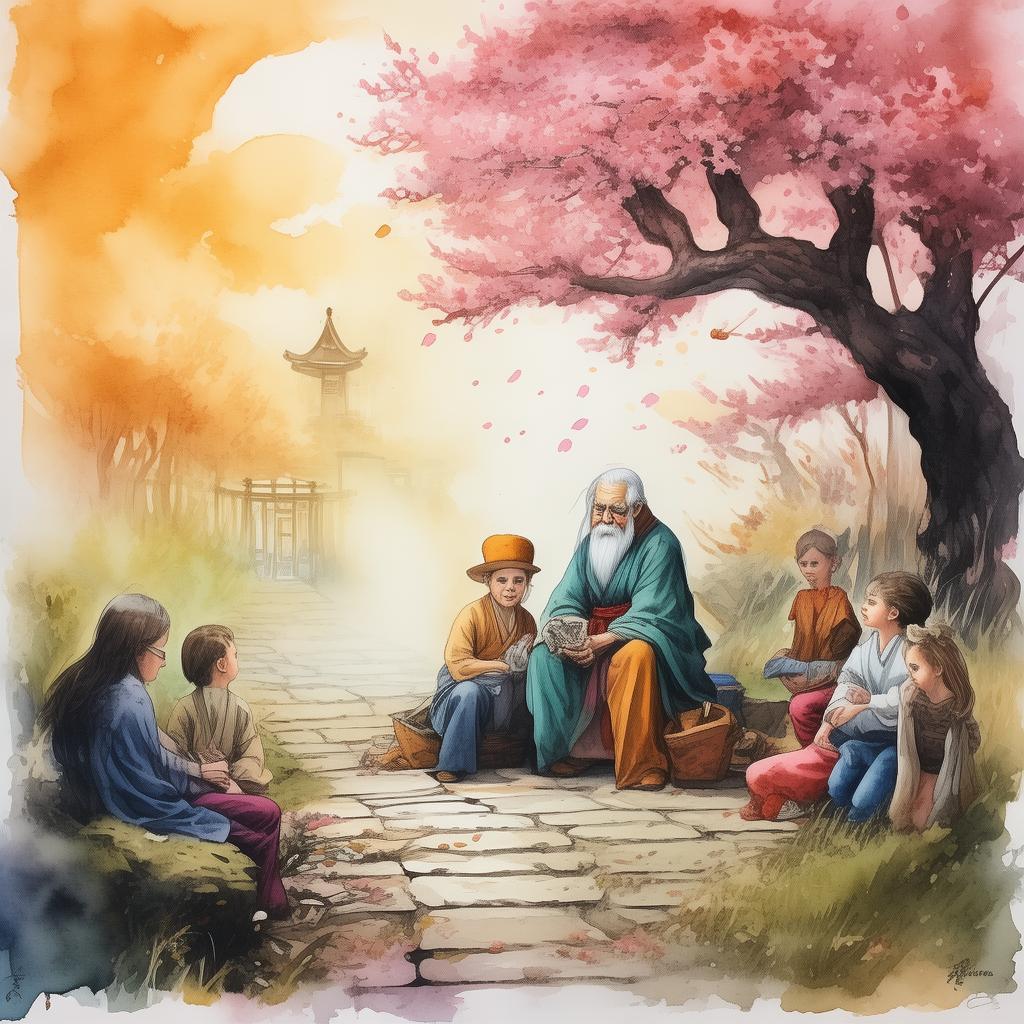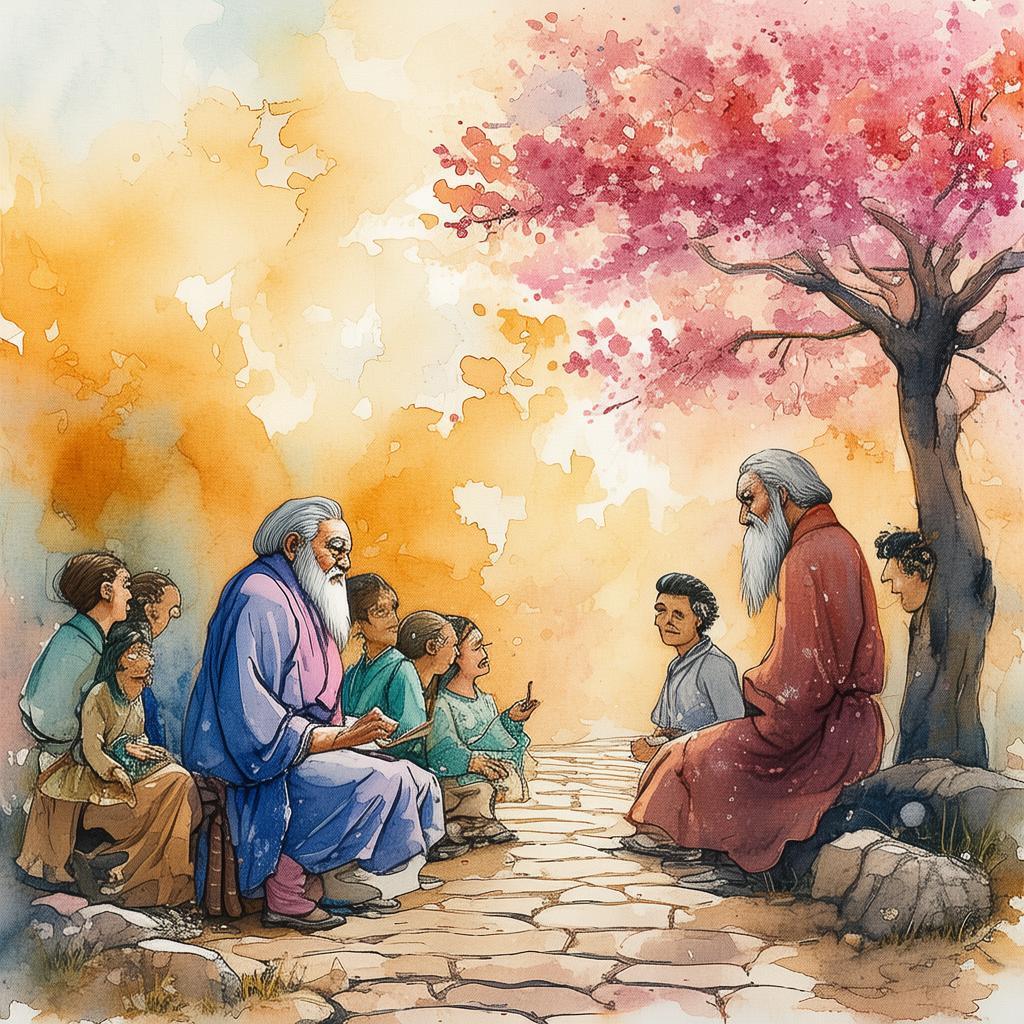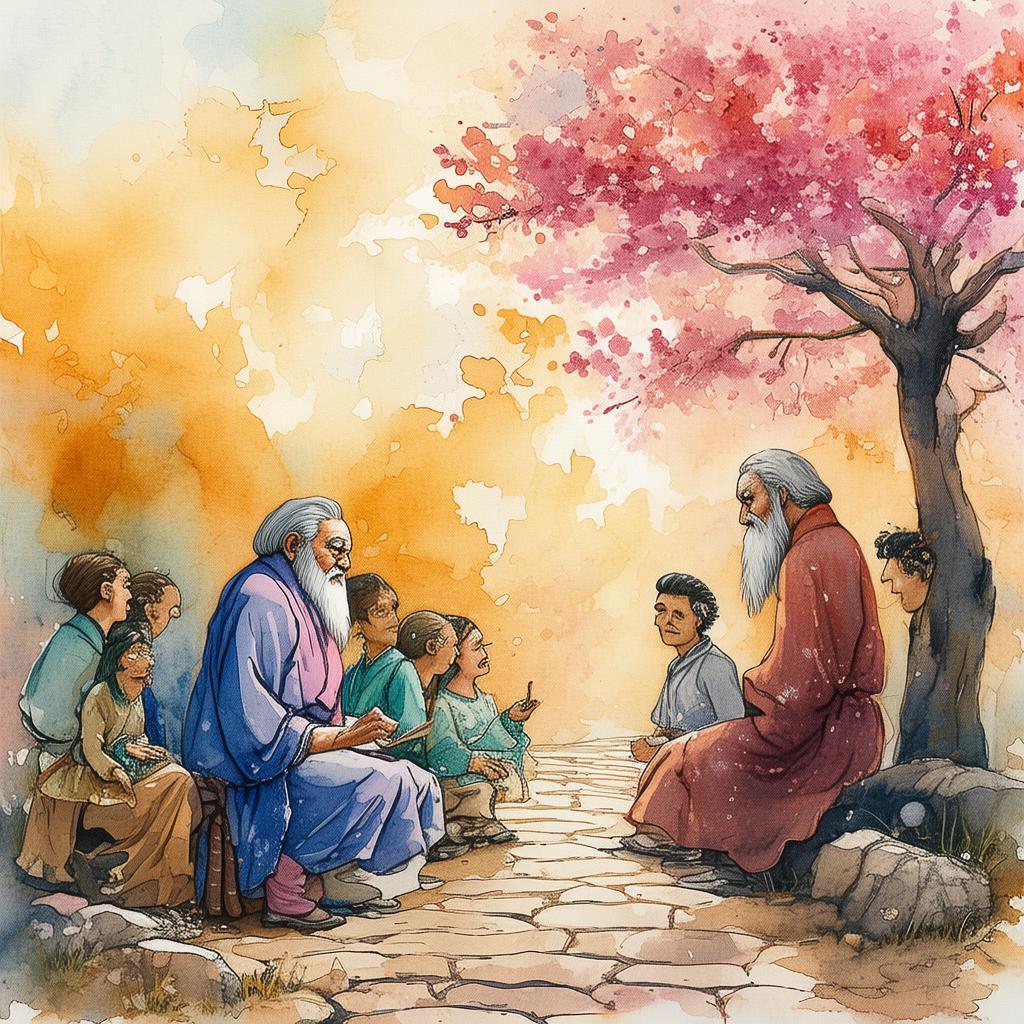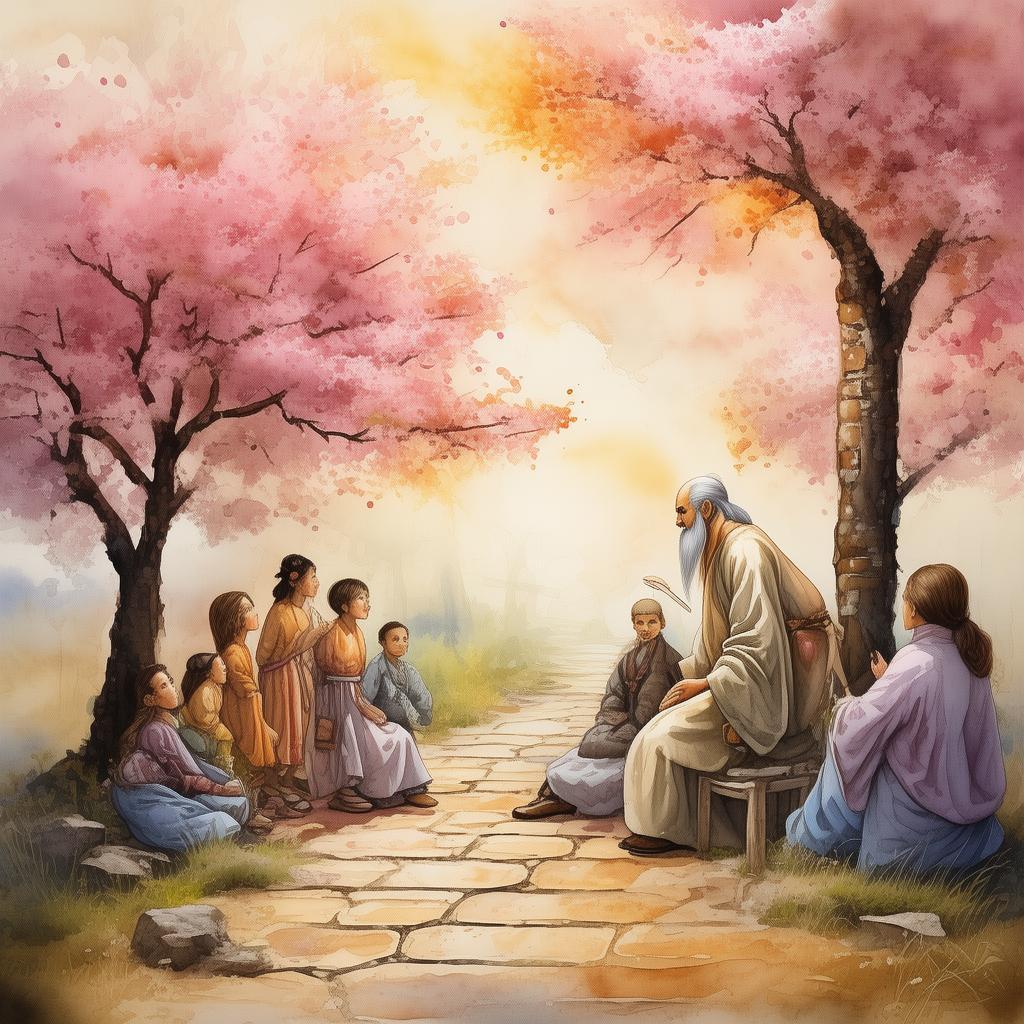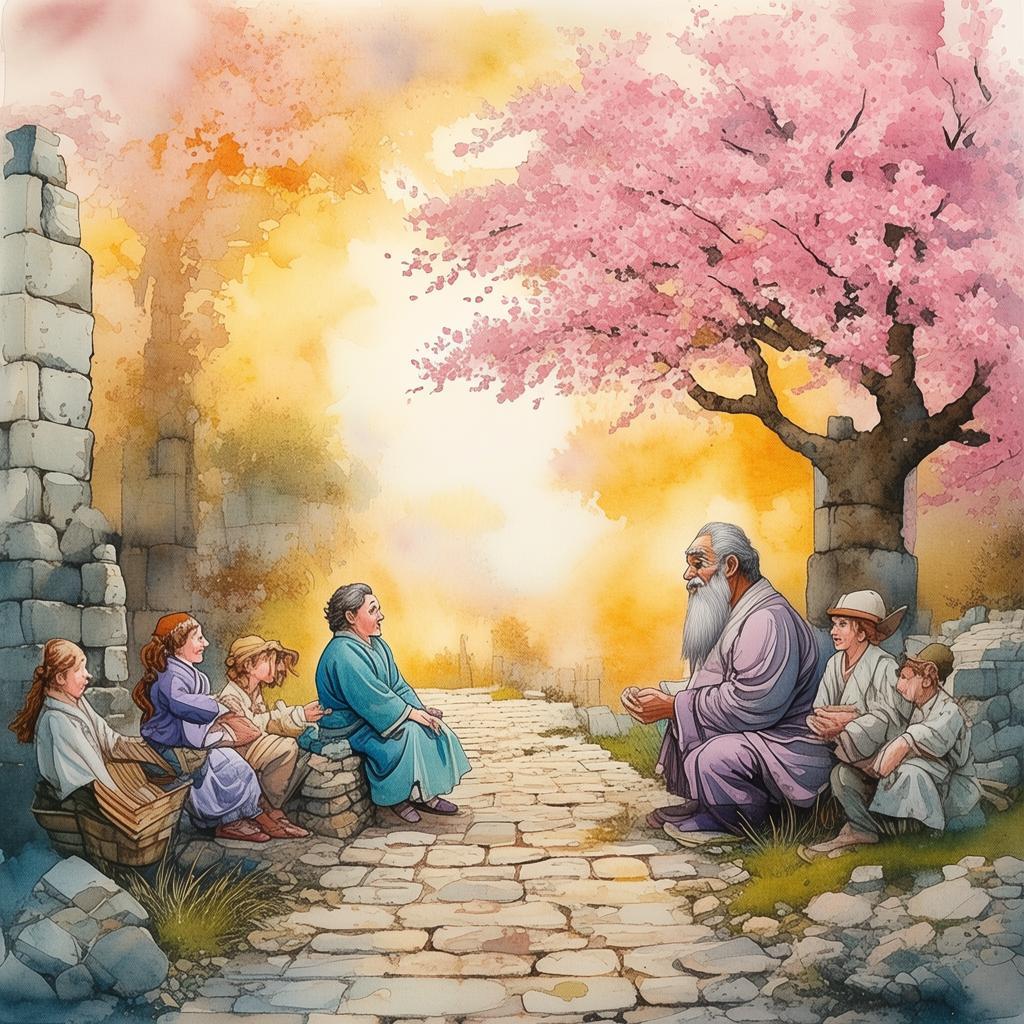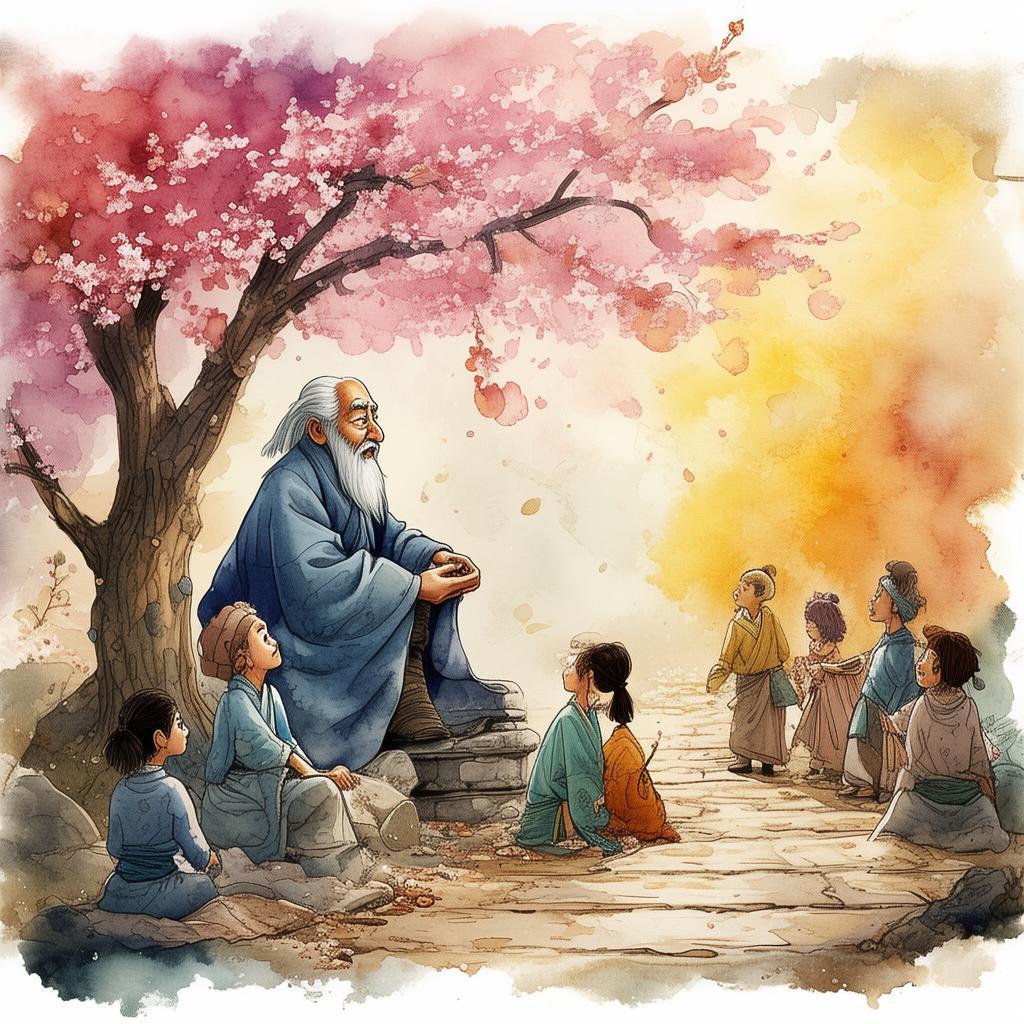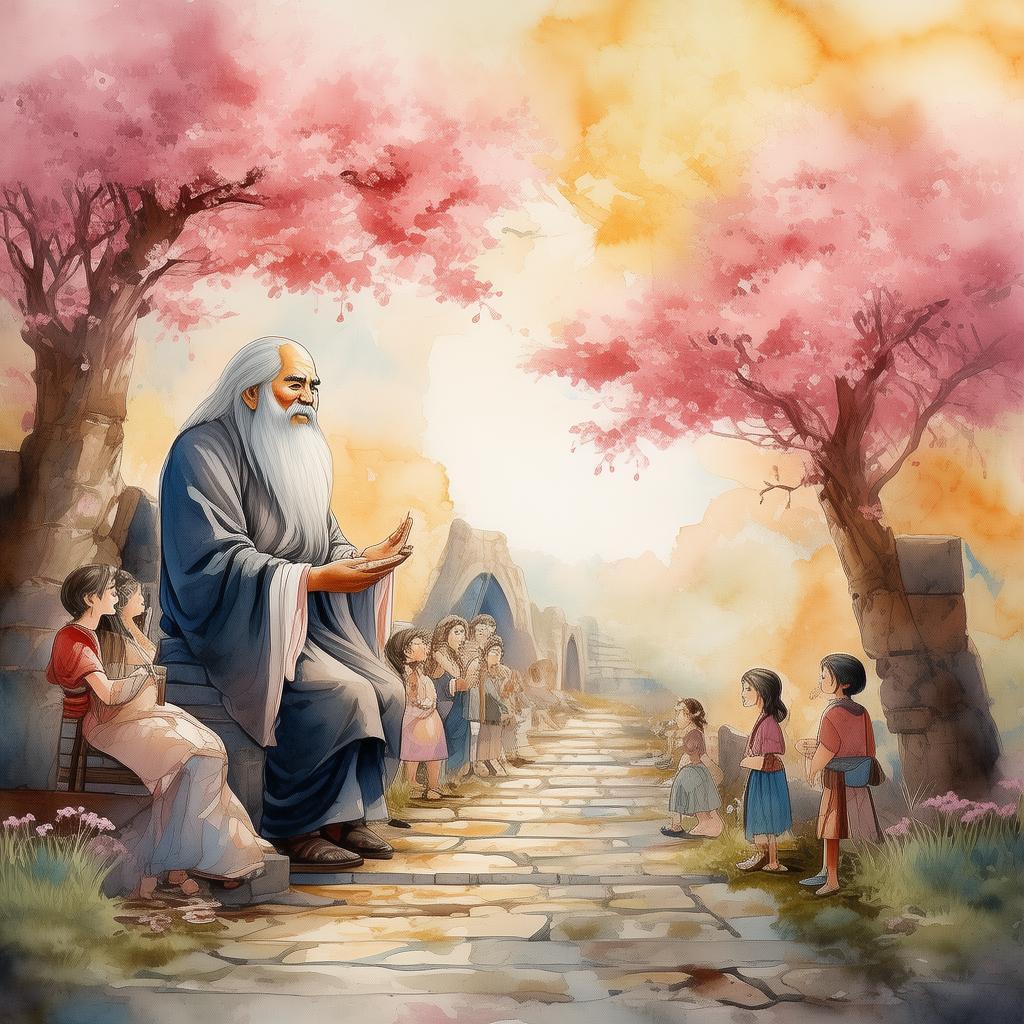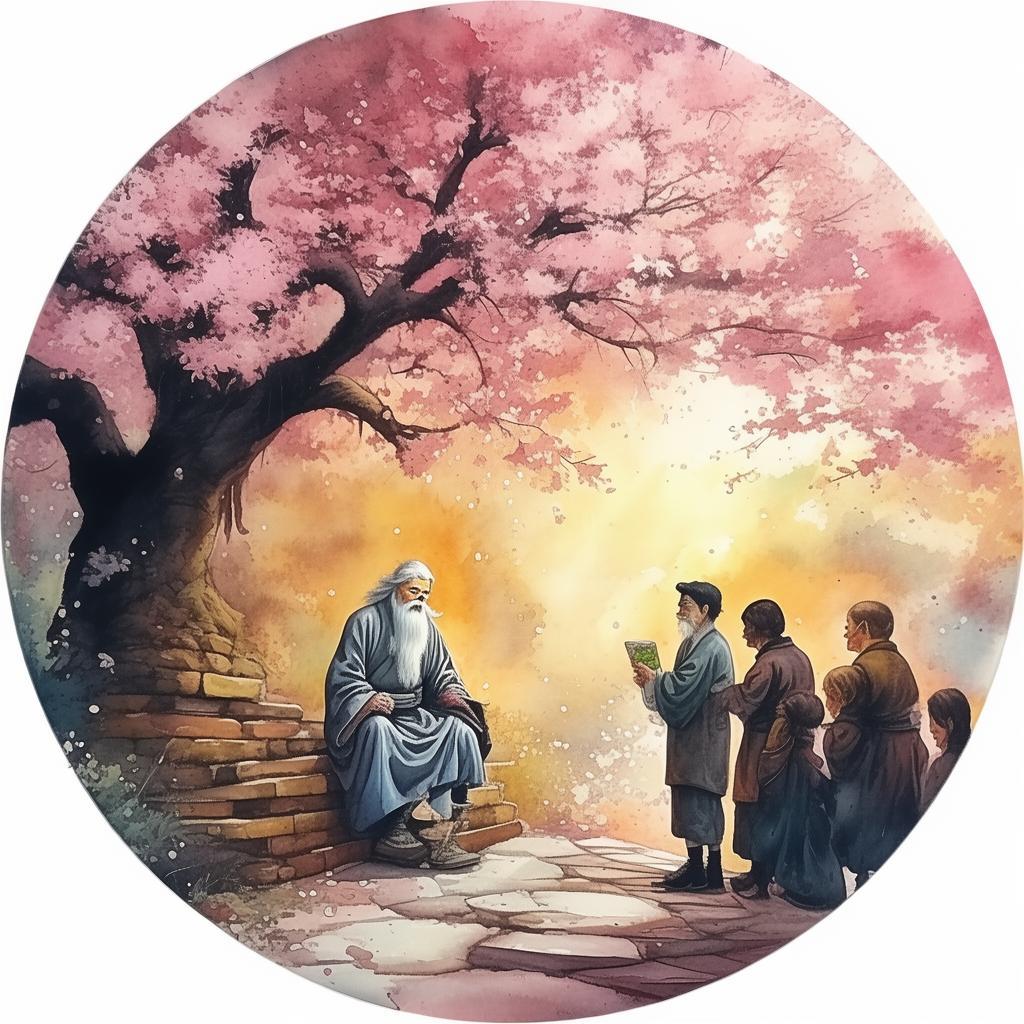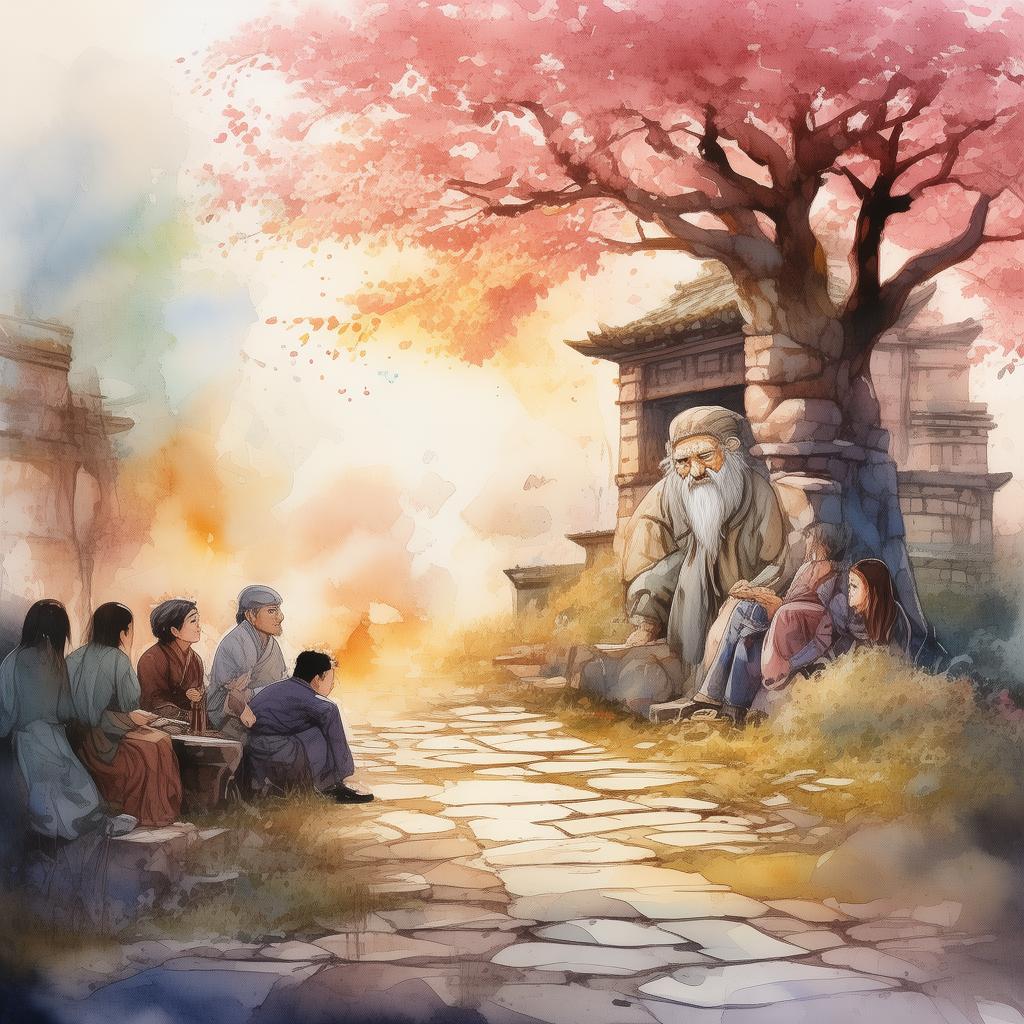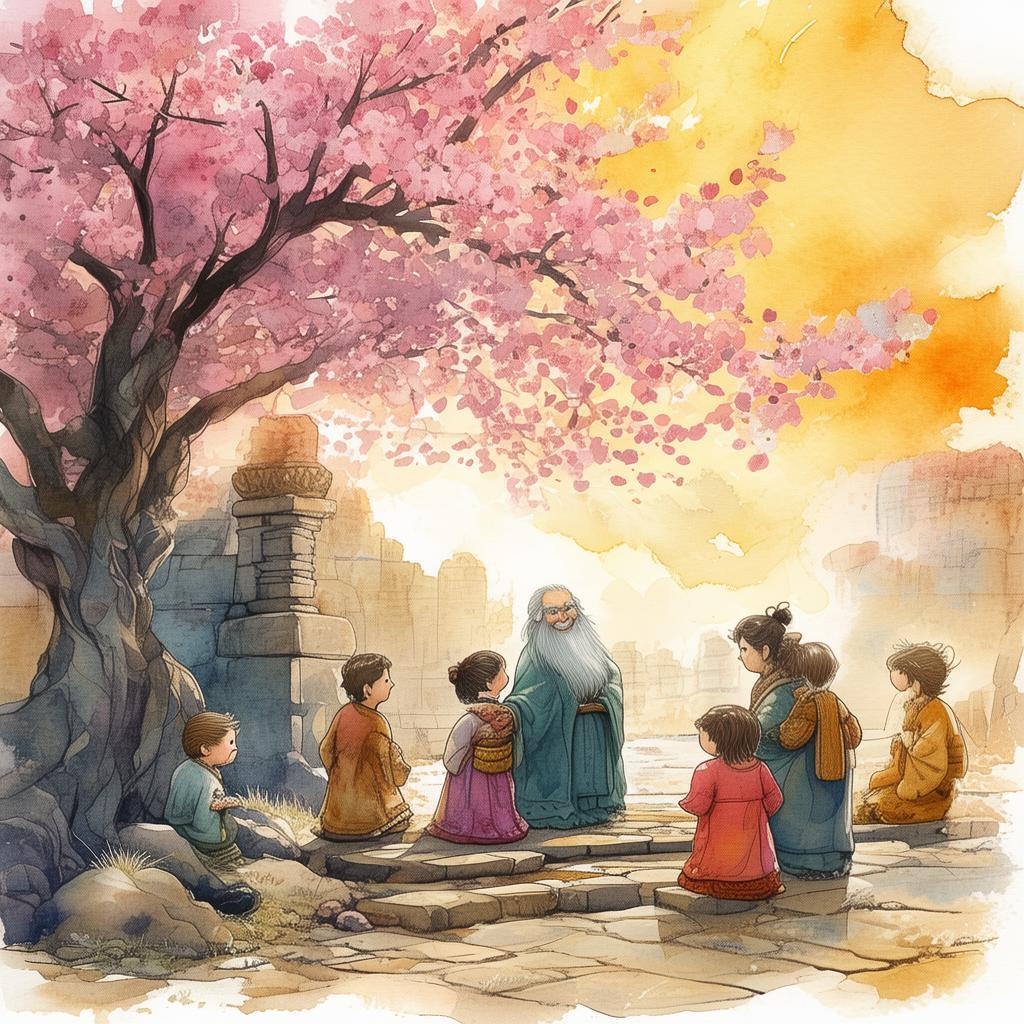Chasing the Echo of Honor: The Betrayal of the Scholar
In the ancient land of Jincheng, where wisdom was as precious as gold and scholars were revered above all else, there lived a man known to the kingdom as Master Zhen. Master Zhen was a paragon of virtue and intellect, his knowledge of the ancient texts and the mysteries of the universe unparalleled. His teachings were the whispers of the gods, and his words the whispers of the walls that surrounded his small but well-regarded school.
One fateful day, the king of Jincheng, eager to expand his empire and bolster his coffers, summoned Master Zhen to the palace. The king was a man of many faces, a connoisseur of power, and a betrayer of trust. He had heard tales of Master Zhen's wisdom and the untapped potential within his library of knowledge. The king offered a deal: in exchange for the secret knowledge Master Zhen held, he would grant him a position of great power, one that would secure the scholar's legacy.
Master Zhen, knowing the weight of his decisions, pondered deeply. His life was dedicated to the pursuit of truth, not power, and he understood the cost of compromising his values. But the whispering walls of his mind told him that the pursuit of power was a dangerous game, one that could consume him and those he held dear. He was torn between the honor of maintaining his integrity and the allure of a seat of influence.
As he deliberated, a young scholar named Liang appeared before him. Liang was a protégé, a student whose intellect and passion for learning had caught the eye of Master Zhen. He spoke of the suffering of the common people, the injustice they endured at the hands of corrupt officials. Liang implored Master Zhen to use his newfound power to bring reform to the kingdom.
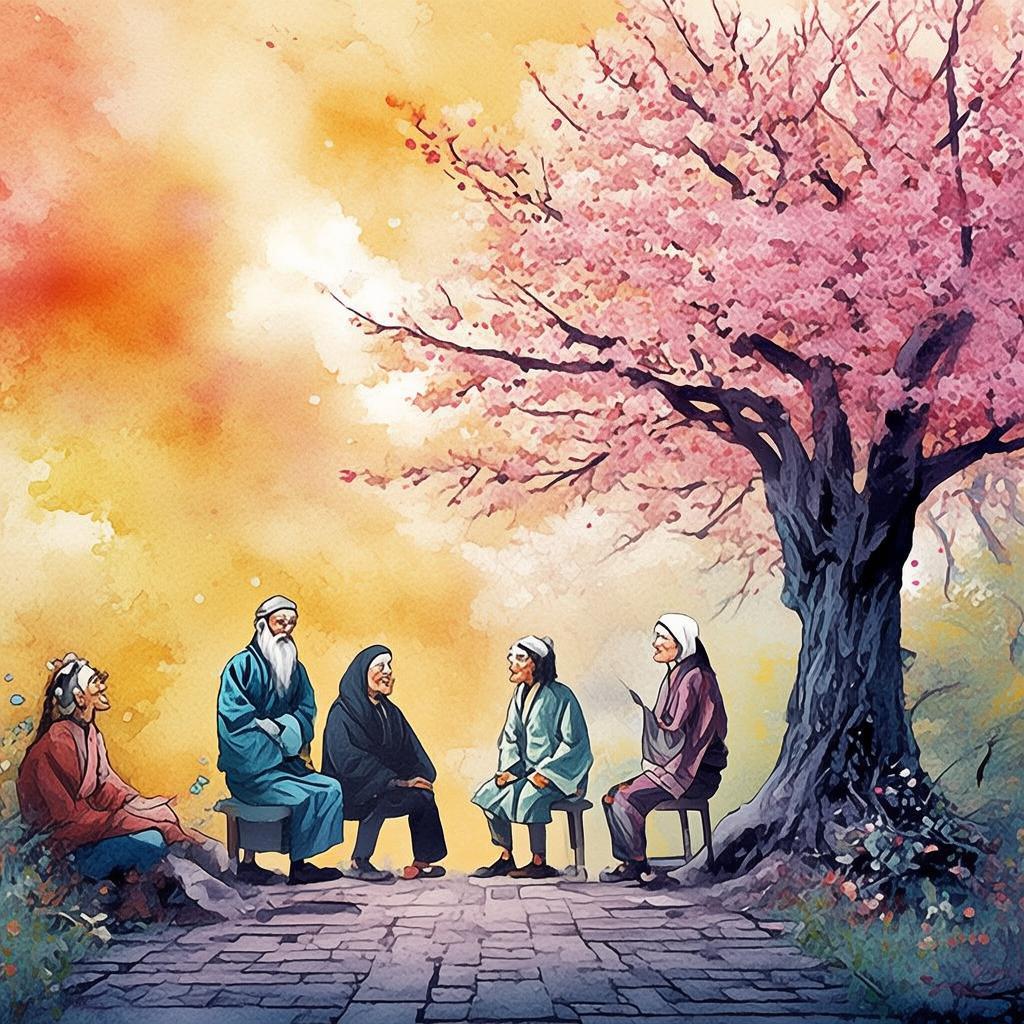
"The whispers of the walls echo the cries of the oppressed," Liang declared. "They need a voice, and you are it."
The words resonated within Master Zhen. He saw the truth in Liang's eyes, a truth that was both painful and liberating. The whispers of the walls, the collective wisdom of the kingdom, were calling out to him. It was a call to action, a call to use his knowledge and influence for the greater good.
With a heavy heart, Master Zhen declined the king's offer. "I am a scholar, not a politician," he said. "My honor lies in my dedication to knowledge, not power."
The king was not one to take rejection lightly. He ordered his agents to kidnap Master Zhen and take him to a remote island, where he would be forced to choose between his life and the knowledge he held.
On the island, Master Zhen faced a series of tests designed to break him. Each test was a reflection of the moral dilemmas he had faced in the palace. The agents of the king questioned his honor, his integrity, and his dedication to the kingdom. They offered him power, wealth, and even the lives of his loved ones in exchange for his silence.
But Master Zhen stood firm. "I cannot betray my principles for any price," he declared. "Honor is not for sale."
The whispers of the walls, ever present in his mind, continued to guide him. They spoke of the suffering of the kingdom, the need for a voice of truth, and the responsibility he carried as a scholar.
Liang, who had followed Master Zhen to the island, witnessed the struggle of his mentor. "You must choose between your honor and the lives of the innocent," Liang implored.
Master Zhen's heart ached at the thought of Liang's sacrifice. He knew that if he succumbed to the king's demands, he would be no longer a scholar of honor, but a betrayer of his people.
In a final act of defiance, Master Zhen challenged the agents of the king to a debate. If he could prove his worth through his intellect, they would have to release him. The agents, intrigued by the scholar's confidence, agreed.
The debate was fierce. Master Zhen, with the whispers of the walls as his guide, challenged the agents to confront the truths hidden within the kingdom's policies and practices. He spoke of justice, compassion, and the power of knowledge to illuminate the dark corners of the human soul.
The agents were confounded by Master Zhen's words. They realized that their master's offer of power was not a gift but a poison. It was a distraction from the true power that lay within knowledge and wisdom.
The king, who had been watching from afar, was ashamed of the agents' actions. He saw the true value of Master Zhen and his dedication to the truth. The whispers of the walls had spoken, and the king was forced to admit his error.
In a moment of humility, the king freed Master Zhen and Liang. He acknowledged the scholar's honor and the wisdom he had possessed all along. Master Zhen returned to his school, where the whispers of the walls continued to guide him in his quest for truth and justice.
And so, the tale of Master Zhen spread far and wide. It was a story of honor, betrayal, and the unyielding spirit of a man who stood firm against the siren song of power. The whispers of the walls, now echoed through the kingdom, served as a reminder of the moral evolution that lay within each individual and the responsibility we all held to pursue honor above all else.
✨ Original Statement ✨
All articles published on this website (including but not limited to text, images, videos, and other content) are original or authorized for reposting and are protected by relevant laws. Without the explicit written permission of this website, no individual or organization may copy, modify, repost, or use the content for commercial purposes.
If you need to quote or cooperate, please contact this site for authorization. We reserve the right to pursue legal responsibility for any unauthorized use.
Hereby declared.
